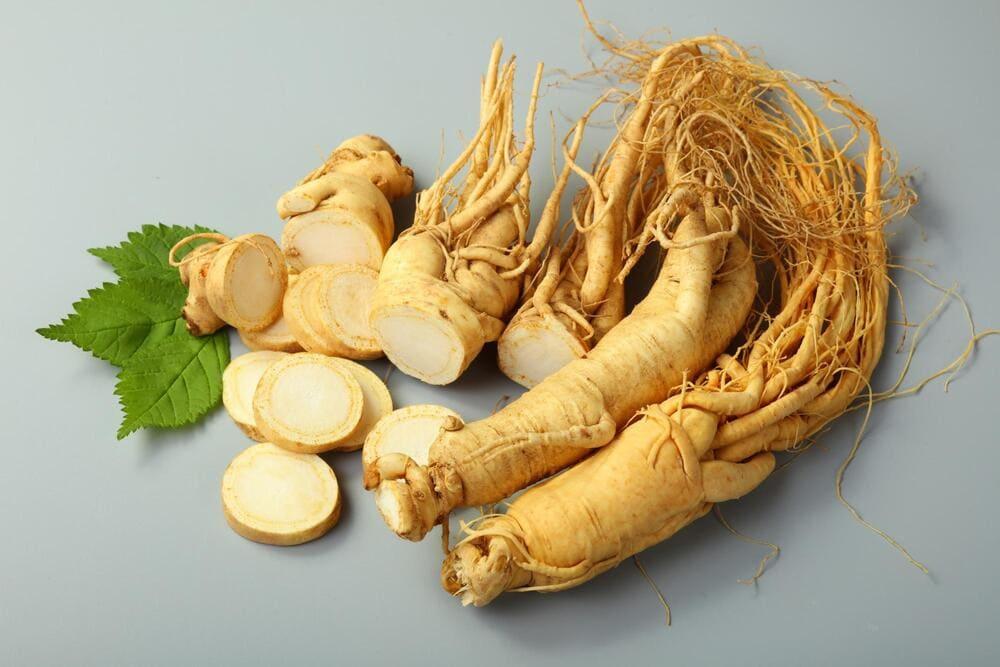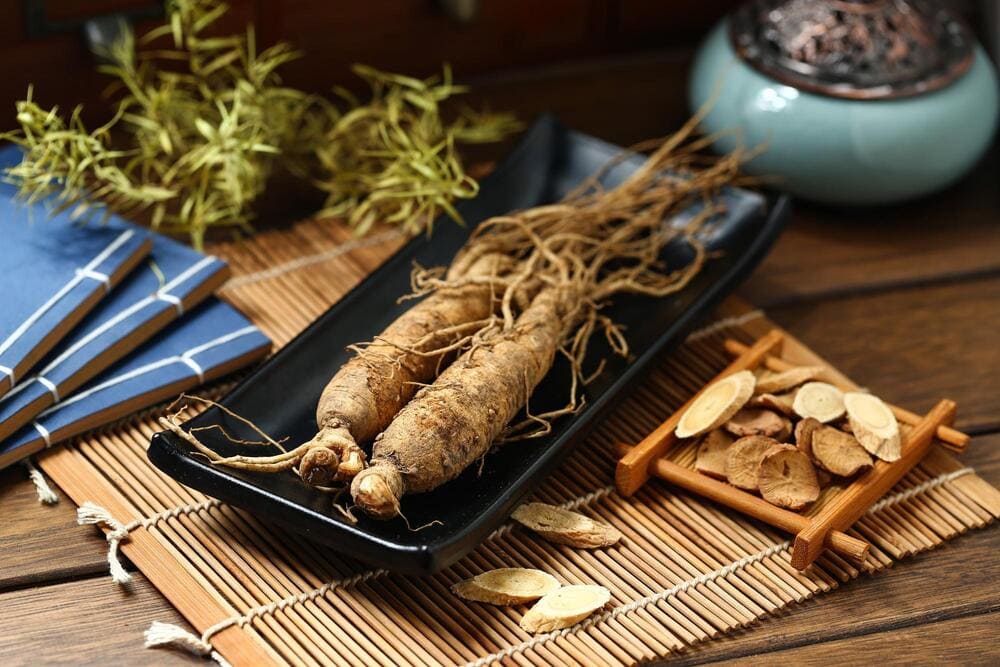For over 2,000 years, ginseng has been revered in traditional Chinese medicine as a powerful adaptogen—a natural substance that helps the body resist stress and restore balance. Today, modern science confirms its wide-ranging benefits, from boosting energy to enhancing cognitive function.
In this post, we’ll explore:
✔ Types of ginseng and their unique properties
✔ Key health benefits backed by research
✔ Best ways to use ginseng (tea, extracts, supplements)
✔ Potential side effects & who should avoid it
What Is Ginseng?
Ginseng refers to the root of plants from the Panax genus (meaning “all-healing” in Greek). The two most studied varieties are:
1. Asian Ginseng (Panax ginseng)
- Also called Korean or red ginseng (when steamed).
- Known for its energizing, warming effects.
2. American Ginseng (Panax quinquefolius)
- Considered cooling and calming.
- Often used for stress relief and immune support.
Other varieties like Siberian ginseng (Eleutherococcus) are adaptogens but not true ginseng.
Top Science-Backed Benefits of Ginseng
1. Boosts Energy & Fights Fatigue
- Stimulates ATP production (cellular energy).
- Shown to reduce fatigue in chronic illness and cancer patients (source).
2. Enhances Brain Function
- Improves memory, focus, and mental clarity.
- May protect against Alzheimer’s and cognitive decline.
3. Supports Immune Health
- Increases white blood cell activity, helping fight infections.
- Potentially reduces severity of colds and flu.
4. Regulates Blood Sugar
- Improves insulin sensitivity in type 2 diabetics (study).
5. Reduces Stress & Anxiety
- Lowers cortisol levels, promoting relaxation.
- Acts as a natural adaptogen for stress resilience.
6. Improves Sexual Health
- Traditionally used as an aphrodisiac.
- May help with erectile dysfunction and low libido.
How to Use Ginseng
1. Ginseng Tea
- Steep sliced dried root in hot water for 5–10 mins.
- Combines well with honey or ginger.
2. Tinctures & Extracts
- Fast-absorbing; ideal for quick energy or immune support.
3. Capsules & Powders
- Convenient for daily adaptogenic benefits.
4. Cooking (Asian Cuisine)
- Added to soups, broths, or stir-fries for stamina.
Contraindications & Side Effects
Who Should Avoid Ginseng?
🚫 Pregnant/Breastfeeding Women – May stimulate uterine contractions.
🚫 People on Blood Thinners (e.g., Warfarin) – Can increase bleeding risk.
🚫 Those with Autoimmune Diseases – May overstimulate immune activity.
🚫 Insomnia-Prone Individuals – Avoid taking it late in the day.
Possible Side Effects
- Headaches, dizziness, or digestive upset (if overused).
- Hormonal fluctuations (due to phytoestrogens).
💡 Dosage Tip: Cycle ginseng (e.g., 2–3 weeks on, 1 week off) to avoid tolerance.

Ginseng is a time-tested super-root that offers energy, mental clarity, and immune support. Whether you sip it as tea or take it in supplement form, its adaptogenic power can help you thrive in a stressful world.
Have you tried ginseng?
Share your experience below!
🌿 Disclaimer: This article is for informational purposes. Consult a healthcare provider before using ginseng, especially if you have medical conditions or take medications.

